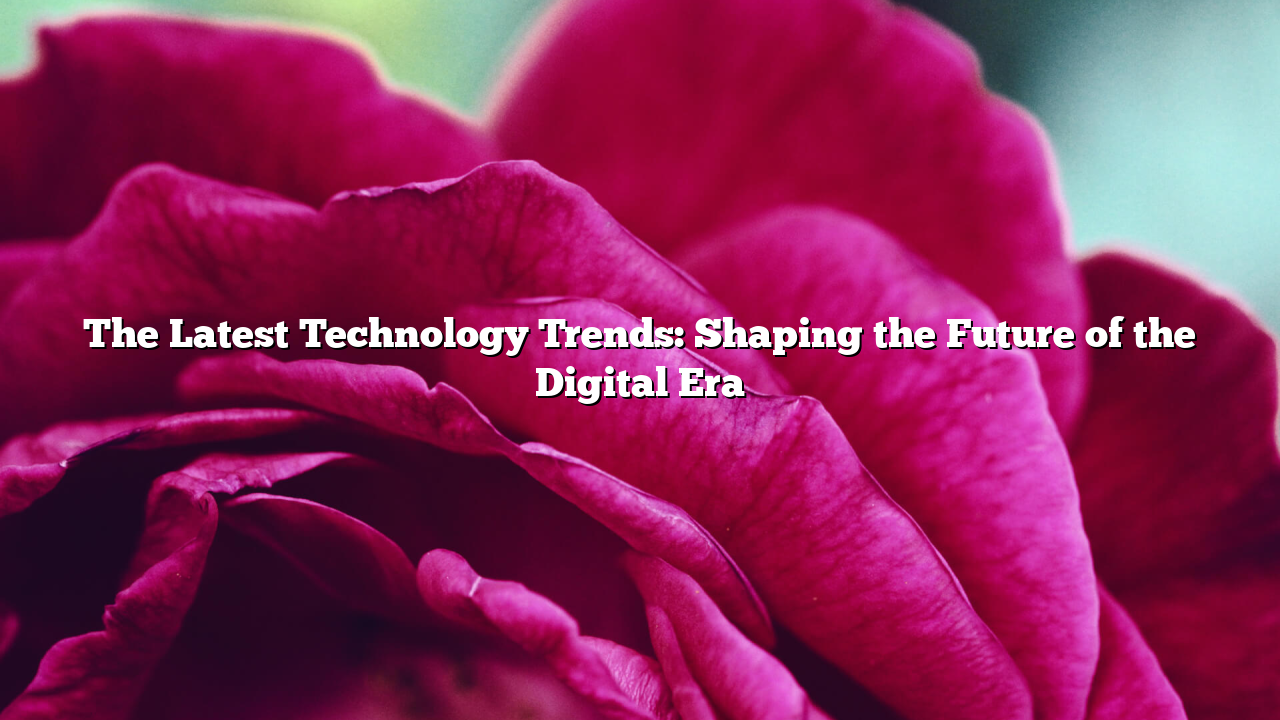Technology continues to evolve at an unprecedented pace, reshaping industries, economies, and societies worldwide. The latest trends in technology not only redefine how businesses operate but also transform the way people communicate, work, and live. From Tempur99 artificial intelligence to green technology, these innovations mark the beginning of a more connected, efficient, and sustainable digital era.
One of the most dominant trends is artificial intelligence (AI). AI applications have rapidly expanded across various sectors such as healthcare, finance, education, and entertainment. Beyond simple automation, AI now enables advanced decision-making, personalized experiences, and real-time data analysis. The emergence of generative AI—capable of creating content, images, and even software code—demonstrates how intelligent systems are becoming integral to daily life. Businesses increasingly adopt AI tools to enhance productivity, while individuals benefit from smarter services tailored to their needs.
Another key development is the growth of the Internet of Things (IoT). This technology connects everyday devices to the internet, allowing seamless communication and data exchange. From smart homes and wearable health trackers to autonomous vehicles and industrial systems, IoT fosters efficiency and convenience. However, as more devices become interconnected, concerns over cybersecurity and data privacy rise, making security measures a top priority for developers and policymakers.
The rollout of 5G technology is also a game-changer. Offering ultra-fast internet speeds and low latency, 5G lays the foundation for innovations like augmented reality (AR), virtual reality (VR), and smart city infrastructure. These applications can revolutionize industries ranging from healthcare to education by enabling immersive experiences and real-time interactions. Moreover, 5G supports the expansion of robotics and automation, further driving industrial transformation.
Meanwhile, blockchain and Web3 technologies are gaining momentum. Known for their ability to ensure transparency, security, and decentralization, they are reshaping financial systems, supply chains, and even digital ownership through non-fungible tokens (NFTs). While regulations and adoption levels differ across regions, blockchain is widely recognized as a powerful tool for building trust in the digital economy.
Another emerging trend is the rise of green technology, reflecting a growing commitment to sustainability. As climate change intensifies, companies and researchers are focusing on renewable energy, eco-friendly devices, and efficient battery solutions. These innovations not only reduce environmental impact but also create new opportunities for industries aiming to balance profitability with responsibility.
Looking further ahead, quantum computing stands as one of the most promising yet experimental technologies. Unlike classical computers, quantum systems can process massive datasets and solve highly complex problems at unmatched speeds. Although still in its developmental stage, quantum computing has the potential to revolutionize fields such as pharmaceuticals, climate modeling, and cybersecurity.
Collectively, these technology trends highlight a future that is smarter, faster, and more sustainable. Yet, they also bring challenges: safeguarding privacy, narrowing the digital divide, and addressing ethical concerns related to AI and automation. As societies embrace these changes, collaboration between governments, businesses, and communities will be crucial to ensure technology serves humanity inclusively and responsibly.
In conclusion, the latest technology trends illustrate a world in transition—where innovation is not only about efficiency and convenience but also about building a sustainable and equitable digital future. By embracing these advancements while addressing their challenges, we are shaping a future that balances progress with responsibility.
